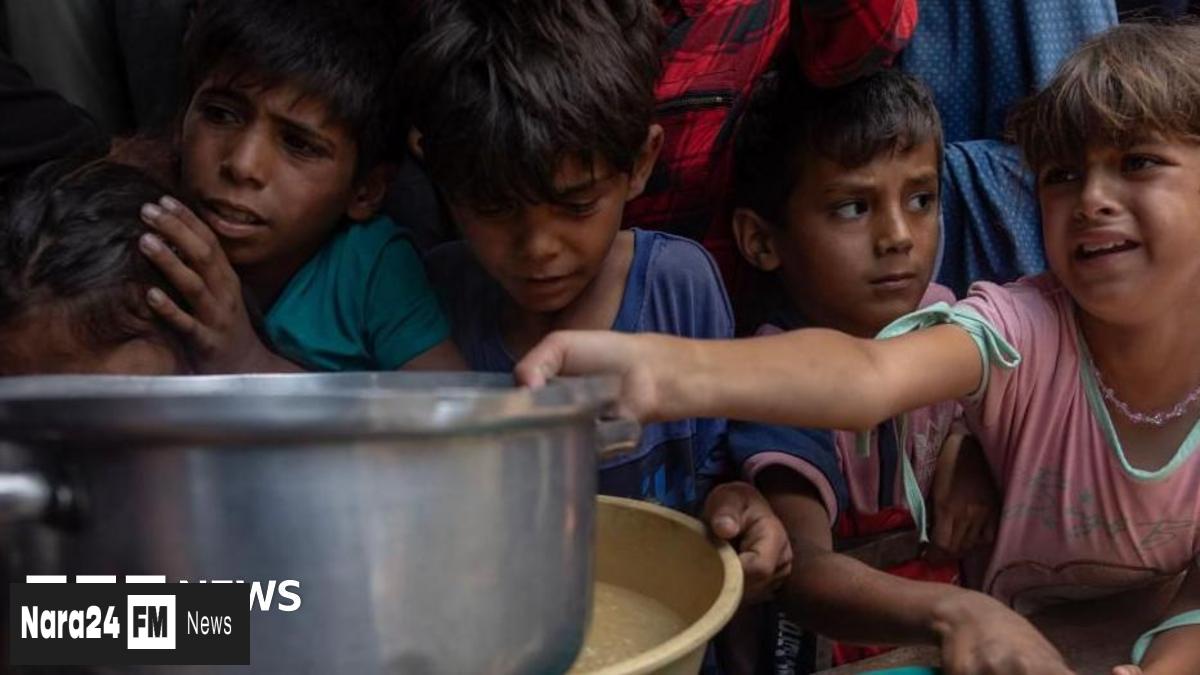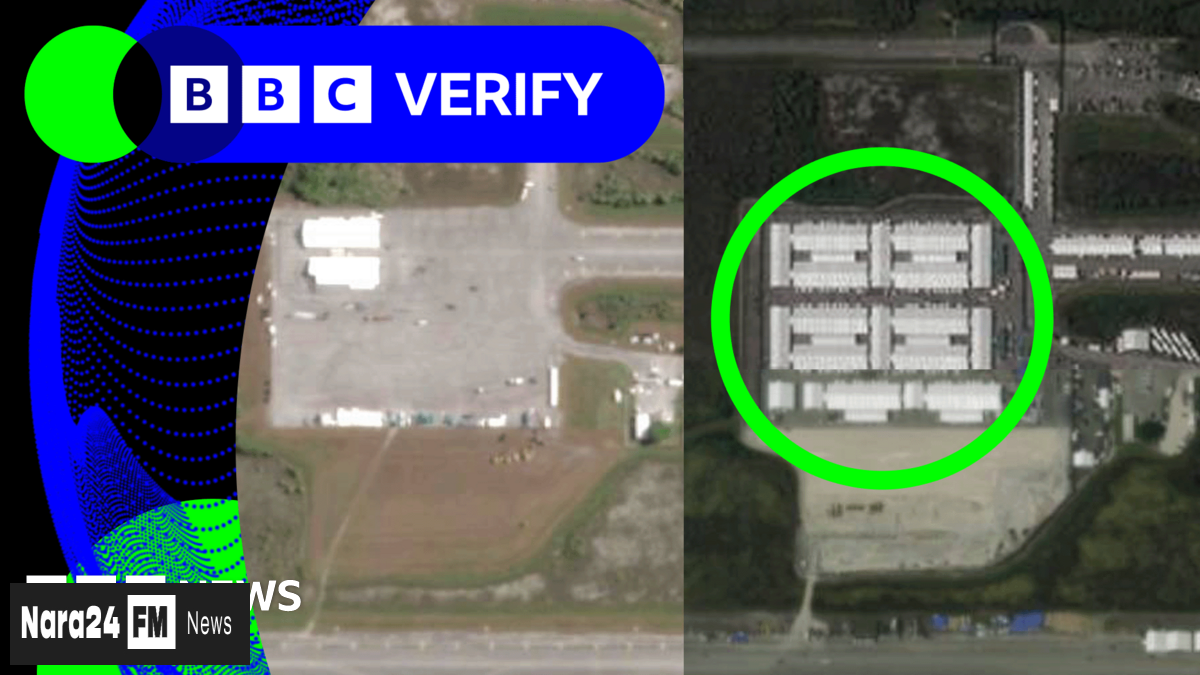A staggering number of Gazans are facing severe hunger, with the UN's World Food Programme (WFP) reporting that nearly one in three residents are going days without eating. The WFP has sounded the alarm, stating that malnutrition is rapidly spreading, with 90,000 women and children requiring immediate medical attention.
International concern has grown significantly this week as warnings of widespread starvation have intensified. According to the Hamas-run health ministry, nine people died from malnutrition on Friday alone, bringing the total number of such deaths since the war began to 122. The health ministry has called for urgent action to address the dire situation.
Israel, which controls the entry of all supplies into Gaza, insists that there are no restrictions on aid getting into the territory. However, the Hamas government accuses Israel of being responsible for the malnutrition crisis. Meanwhile, Israeli security officials have hinted at allowing airdrops of aid into Gaza in the coming days, a move that aid agencies have previously criticized as inefficient and impractical.
Local media reported that the United Arab Emirates and Jordan might carry out the latest airdrops, but a senior Jordanian official stated that the military had not yet received permission from Israel to proceed. The UN has described the proposed airdrops as a "distraction to inaction" by the Israeli government, urging for more effective measures to address the humanitarian crisis.
Amid the mounting international concern, Germany, France, and the UK have called on Israel to "immediately lift restrictions on the flow of aid" into Gaza. In a joint statement, they demanded an end to the "humanitarian catastrophe" and the ongoing war itself, emphasizing Israel's obligations under international humanitarian law. The statement declared that withholding essential humanitarian assistance to the civilian population was "unacceptable."
UN Secretary-General António Guterres expressed dismay at the level of indifference and inaction displayed by many in the international community. He condemned the lack of compassion, truth, and humanity demonstrated in response to the crisis. Guterres also highlighted the tragic toll of the conflict, stating that over 1,000 Palestinians had been killed while attempting to access food since the Gaza Humanitarian Foundation (GHF) began distributing supplies in May 2025 as an alternative to the UN-led system.
A former US security contractor who worked for the GHF in May and June 2025 shared his experiences with the BBC, describing witnessing war crimes during his time in Gaza. Anthony Aguilar reported seeing the Israeli Defense Forces (IDF) and US contractors using live ammunition, artillery, mortar rounds, and tank fire on civilians at food distribution sites. He described the level of brutality and indiscriminate use of force as unprecedented in his career. The GHF, however, dismissed these claims, labeling them as false and originating from a disgruntled former contractor who had been terminated for misconduct.
Meanwhile, the future of ceasefire negotiations remains uncertain, as the US and Israel withdrew their negotiating teams from Qatar. US President Donald Trump claimed that Hamas "didn't really want to make a deal," expressing the view that they "want to die." Hamas, on the other hand, expressed surprise at Trump's remarks and stated that mediators had informed the group that negotiations had not collapsed. They also mentioned that the Israeli delegation was expected to return to Doha next week.
Since the war began in October 2023, over 59,000 people have been killed in Gaza, according to the Hamas-run health ministry. Israel imposed a total blockade of aid deliveries in March, resuming its military offensive against Hamas and collapsing a two-month ceasefire. While the blockade was partially eased after warnings of a looming famine, shortages of food, medicine, and fuel have worsened. Most of Gaza's population has been displaced multiple times, with over 90% of homes estimated to be damaged or destroyed.
Amid the humanitarian crisis, France announced its intention to officially recognize a Palestinian state in September, a move that angered Israel and its main ally, the US. Over a third of UK MPs signed a letter to Prime Minister Keir Starmer, urging him to follow suit. However, Starmer indicated that such a move would not be imminent, emphasizing the need for a "wider plan which ultimately results in a two-state solution."









Comments (0)
Leave a Comment
Be the first to comment on this article!